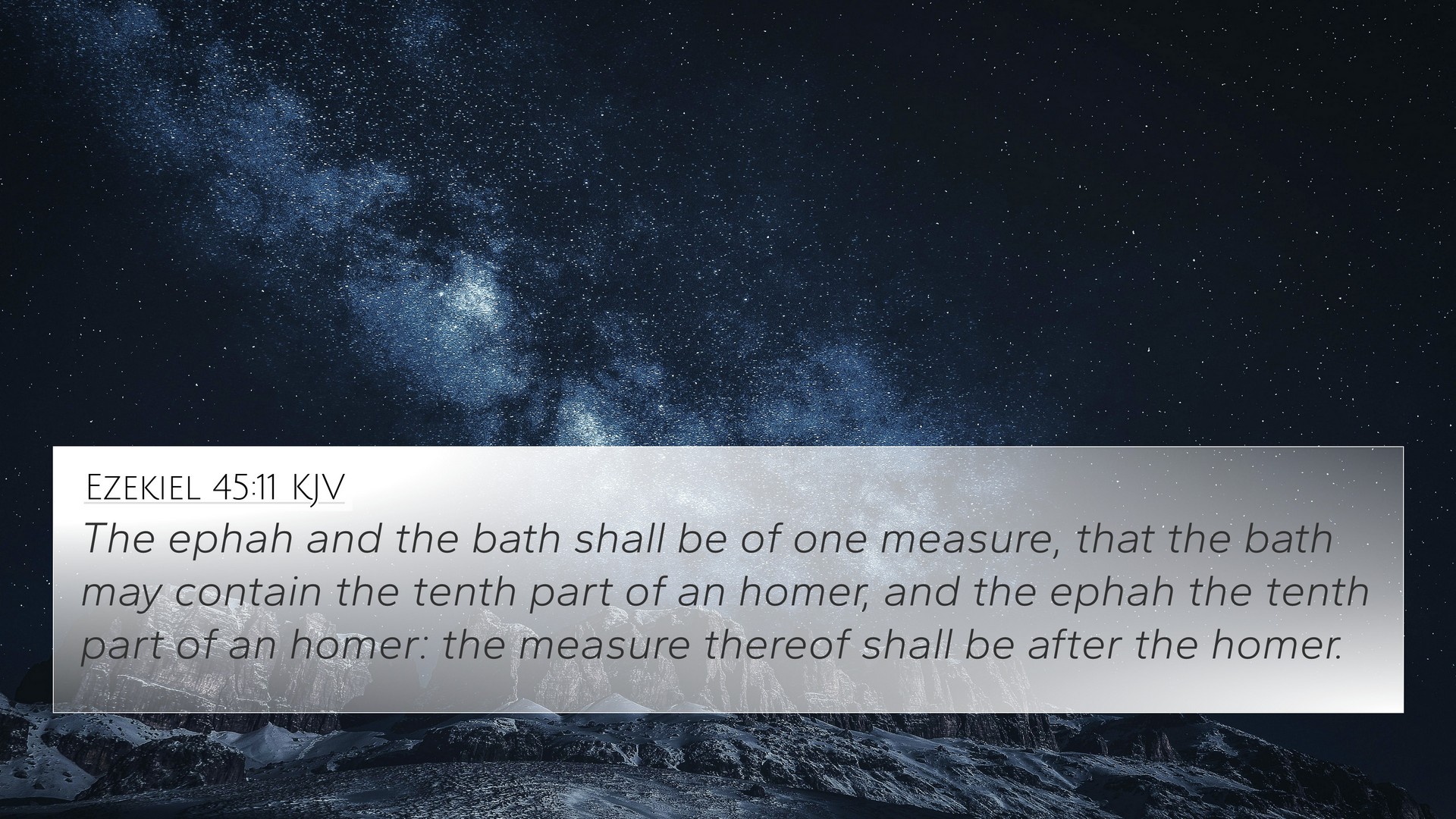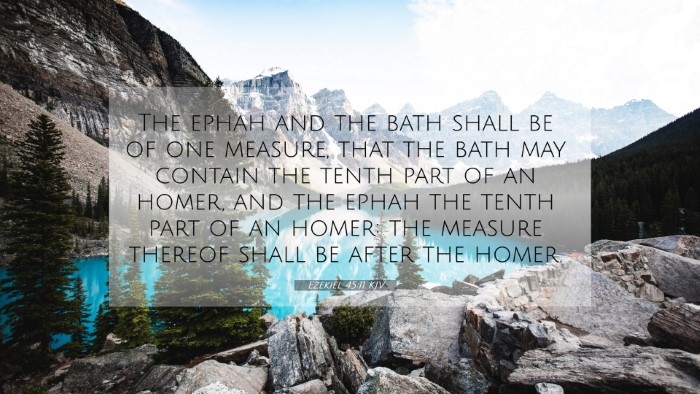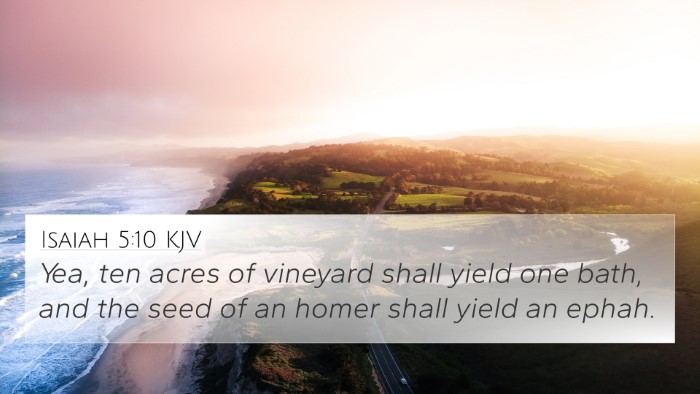Ezekiel 45:11 - Understanding the Verse
Ezekiel 45:11 states: "The ephah and the bath shall be of one measure, that the bath may contain the tenth part of a homer, and the ephah the tenth part of a homer: the measure thereof shall be after the homer." This verse is part of a detailed vision of the temple and its regulations, highlighting God's provisions for His people.
Meaning and Insights
This verse outlines specific measurements for the ephah and the bath, which were units of measure used in Israelite culture for dry and liquid substances respectively. The instructions provided are crucial for understanding the system of worship and offerings in the temple, as well as the order God desires among His people. Matthew Henry, Albert Barnes, and Adam Clarke provide valuable insights into this verse that can deepen our understanding.
Insights from Matthew Henry
Henry emphasizes the importance of accuracy in the measures of worship. He notes that God desires precision in the way His people approach worship, as depicted in the meticulous nature of these measurements. This reflects God's holiness and the necessity for His people to approach Him with reverence and care.
Insights from Albert Barnes
Barnes highlights the symbolic meaning behind the measures. The consistency in the measurements signifies harmony in worship and the care with which God orchestrates his plans for Israel. He also draws parallels to the New Testament, emphasizing that God is not a god of confusion but of order and clarity.
Insights from Adam Clarke
Clarke elaborates on the practical application of these measures in the daily lives of the Israelites. He refers to the ephah and bath as reflections of God’s provision. Clarke also suggests that understanding these measures gives insights into how God's people were expected to live in community, honoring God through equitable trade and proper offerings.
Cross-References
This verse is connected to several other verses in the Bible that enhance its meaning:
- Leviticus 19:36 - "Just balances, just weights, a just ephah, and a just hin, shall ye have." This verse emphasizes fairness in measuring, echoing the principles in Ezekiel 45:11.
- Deuteronomy 25:15 - "But thou shalt have a perfect and just weight, a perfect and just measure shalt thou have." This reinforces the biblical call for justice and equity in dealings.
- Amos 8:5 - "When will the new moon be gone, that we may sell corn? And the sabbath, that we may set forth wheat, making the ephah small, and the shekel great?" This introduces the challenge of corrupt practices contrasting the prescribed measurements.
- 1 Corinthians 14:40 - "Let all things be done decently and in order." A reminder that the principles from the Old Testament carry into the New Testament concerning orderliness in worship.
- Matthew 5:17 - "Think not that I am come to destroy the law, or the prophets: I am not come to destroy, but to fulfill." This indicates the continuing relevance of the measurements specified in the Old Testament.
- Revelation 21:15 - "And he that talked with me had a golden reed to measure the city, and the gates thereof, and the wall thereof." This represents God's meticulous standards extending into His eternal kingdom.
- Micah 6:11 - "Shall I count them pure with the wicked balances, and with the bag of deceitful weights?" This verse strongly critiques dishonest practices in contrast to the intended clean measures.
- Luke 16:10 - "He that is faithful in that which is least is faithful also in much: and he that is unjust in the least is unjust also in much." Reflecting the importance of integrity in all matters, including measurements in worship.
- Proverbs 11:1 - "A false balance is abomination to the Lord: but a just weight is his delight." This echoes the sentiments of fairness and justice present in Ezekiel's message.
- Hebrews 11:1 - "Now faith is the substance of things hoped for, the evidence of things not seen." While not directly related to measurements, it relates to the underlying faith in God's plans, of which precise measures are a part.
Conclusion
In summary, Ezekiel 45:11 provides a glimpse into the order and holiness required in worship. Understanding this verse helps us appreciate God’s desire for justice, measures of righteousness, and the importance of living harmoniously in community. It also prompts us to explore the connections between other scriptures that highlight similar themes of order and integrity in both the Old and New Testaments.
Further Study
To delve deeper into the connections between Bible verses, consider using tools for Bible cross-referencing, such as a Bible concordance or cross-reference guide. Engaging in a cross-reference Bible study can illuminate links between themes and enrich your understanding of inter-Biblical dialogue.



